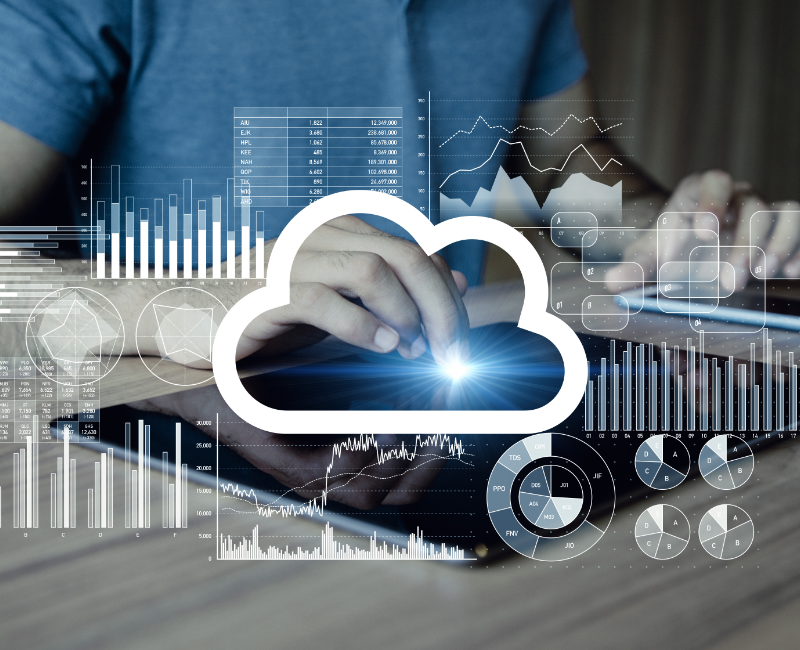Remember Walkmans? And later, portable CD music players? And VHS video players? And fax machines?
These were all once considered the very latest in technology but are now obsolete.
Times sure change.
And do you know what else will soon fall into this, “Remember when we used to use…” category?
Desktop accounting software.
By ‘desktop’ I mean accounting software that you install on a computer and then every year or so you have to pay money to upgrade it to the latest version. Desktop accounting software is also where you have to send a copy of the latest version of the data to your bookkeeper or accountant for them to work on it, which then runs the risk of the information getting out of sync with your version, if you use your accounting software while they are editing their copy of the data.
It’s a messy, inefficient process which often leads to errors and headaches.
Desktop software—especially for accounting—is old technology. In fact, it won’t be long before we will all look back and laugh that we used to use it.
Cloud accounting is the new standard for small business accounting and bookkeeping technology.
7 reasons to use a cloud accounting app in your business
If you haven’t already switched to using cloud accounting software such as Xero, here are 7 reasons we think it’s a no-brainer to make the switch, and soon…
-
Up-to-date data for decision making
When you use desktop accounting software and have to transfer data files back and forth with your accountant, delays are created in generating financial reports for your business.
It can be many weeks after the end of a month before a small business owner has the accurate information they need about their business’ performance. There’s no way you can make timely decisions to better manage your small business, working this way.
When you use cloud accounting software such as Xero, you, your accountant and your bookkeeper all have real-time access to the same ‘master version’ of your accounting data. This means there’s no need to download data files, send them off, wait for them to be edited and updated, wait for them to be sent back to you and then re-import the new data.
Instead, having your accounting data in the cloud means everyone can see today’s up-to-date version of your data—your business’ performance—which gives you greater transparency and control in managing your business.
-
No need to update software or back up your data
You’re a business owner, not an IT manager. You have better things to do than to run software updates and make sure your data back-ups are happening and working correctly.
Using cloud-based apps to run your business, the apps update themselves and your data is always backed-up, in multiple locations.
It’s not uncommon for small business operators to be a little wary of ‘the cloud’ and to feel that their business’ data is more secure when it is on their own computers sitting in their office, where they can see it. That’s understandable, on an emotional level. On a logical level though, most small business’ data back-up processes are probably not consistent or bullet-proof.
On the other hand, cloud-based app (‘Software as a Service’) providers not only back up your data continuously across the day, they back up to servers in multiple cities and countries. That’s far more secure than a small business’ own back-ups.
-
Better security (yes, you read that correctly)
It’s counter-intuitive to think that your data is more secure when stored on servers ‘in the cloud’ than when stored on computers inside your own business.
But it is. It’s a like a walk in the park for a computer hacker to hack into the average small business’ computer network. If you use the internet in your business, you could be hacked.
Software as a Service (SaaS) providers, on the other hand, use the same level of computing security that your internet banking uses. That’s millions of times harder to hack into than a small business’ computer network, and when you add an extra login step (called Two Factor Authentication or ‘2FA’) such as receiving a one-time-use code via SMS that you enter in addition to your username and password, your data is behind a virtual impenetrable fortress.
-
Better collaboration with your advisors
What’s one thing that every small business owner hates? Large, unexpected (or forgotten about) bills, such as tax! When it dawns on you—or when you are belatedly told—that you have a very large tax bill coming up and you don’t have enough money in the bank to pay for it, it’s VERY stressful.
Using cloud-based accounting software such as Xero in your business makes it easier for your accountant or bookkeeper to know the true story of your business’ cash position. This allows them—and you—to more easily see if there is a cash flow crunch coming up, which gives everyone enough time to discuss it, plan for it and take corrective action.
You can’t have a collaborative relationship like this with your advisors if everyone is looking at out-of-date or out-of-sync data, which is what desktop accounting software tends to give you.
-
Save time with less data entry
I am yet to meet a small business operator who enjoys doing—or enjoys paying their staff to do—data entry. It’s such a low value, unnecessary cost for a small business.
Cloud accounting allows you to eliminate a LOT of data entry work. Xero, for example, can connect to your business’ bank accounts and credit cards and then automatically import (‘type in’) all the transactions each day — without you or any of your staff lifting a finger.
The accounting software also learns over time and can be instructed via rules to automatically code transactions a certain way if, for example, the transaction mentions a particular supplier or includes a specific phrase.
And even the hassle of managing and filing receipts and invoices can be streamlined using apps that connect to Xero, such as Receipt Bank.
How efficient is this… You can take photos of receipts with the Receipt Bank app on your phone (think fuel receipts), and you can automatically forward invoices you receive via email and PDF attachments (think monthly subscriptions), and Receipt Bank will read the receipts and invoices, automatically do the data entry for you, and then queue them up so you can check the details before approving them to be published across into Xero. It even detects any tax amounts and lists them out separately.
-
Freedom to access your data from anywhere
That’s one of the great aspects of cloud computing — you can access your business’ up-to-date information from wherever you are, as long as you have internet access. You can also access your data conveniently through your phone or tablet, without having to lug around your laptop.
Sure, when you’re on holidays with your family, the last thing you probably want to do is check your accounting system, but let’s face it… when you’re running a small business there are times when you need to check if an invoice has been paid, follow up a debtor or make sure a pay run is done on time.
Cloud accounting software like Xero makes this easy and gives you more flexibility in your lifestyle.
-
Get paid faster
To improve a small business’ cash flow cycle, it’s crucial to issue invoices promptly, make it easy for customers to pay, and immediately follow up any overdue invoices.
Xero makes all of this easy.
For example, you can easily create an invoice, turn it into a PDF, email it off to the customer with a message, plus create Invoice Reminders that will automatically send an email to the customer when the invoice is overdue, or is about to become due.
That’s super-efficient, but it gets better.
You can also choose to send an electronic invoice via email with a link that when the customer clicks it, opens the invoice in their web browser and displays a Pay Now button. By linking your Xero account with payment providers such as PayPal, Stripe or GoCardless you can make it quick and easy for your customers to pay you via credit card or direct debit.
The result? Convenience for your customers and cash in your bank sooner.
Many more reasons to move to the cloud
These are just 7 reasons to make the switch to using a cloud accounting app such as Xero.
There are plenty of other reasons too, such as the ability to integrate—effectively ‘join together’—various apps in your business including point-of-sale, inventory, staff rostering, CRM, marketing and other apps, so that you can eliminate even more data entry in your business and have better real-time information to make decisions.
Xero’s add-on marketplace gives you access to over 500 different cloud-based apps, a number of which could make a big difference to your business’ efficiency and profitability.
Time to move to the cloud?
Don’t let your business’ accounting and information systems be the equivalent of a Walkman or VHS video. If you are still using desktop accounting software, it’s time to change.
Get in touch with us and we’ll be happy to have a chat with you to discuss the steps involved in moving to a cloud accounting app such as Xero. We will help you every step of the way to get you set up and running smoothly.

